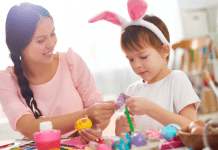Turning Red was the film we needed to normalize puberty. The transition from girlhood to womanhood is uncharted territory and, honestly, awkward. The film itself has sparked so much debate from parents. But, I want to share why it carries an important message for me.
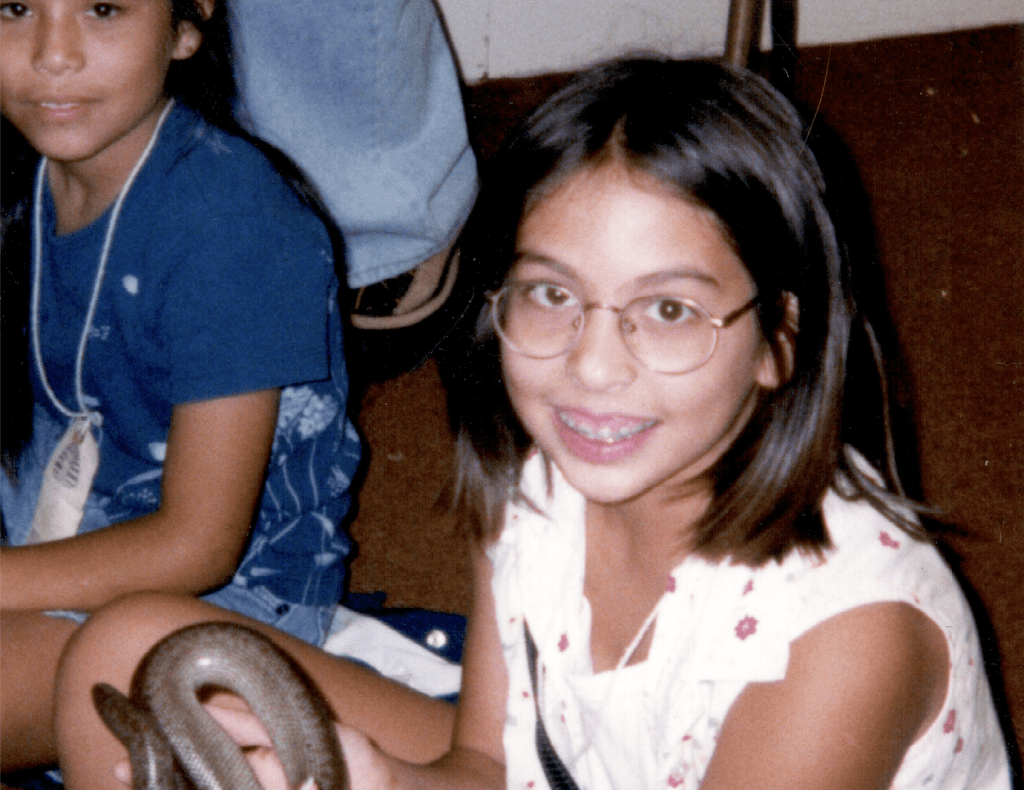
The story follows Mei Lee, a 13-year-old tween living with her parents in Toronto. Mei values her family and, especially, the approval and acceptance of her mother. However, she’s at the age where she’s discovering who she is and finding her independence. After a very traumatic and embarrassing situation with her mom, she wakes up in the morning discovering she has transformed into a red panda (a family curse). Throughout the movie, she switches between her human-self and her panda-self, with her panda-self surfacing when she has BIG emotions. What 13-year-old doesn’t have big emotions to battle?
The story of Mei could have been written about me. Although Mei comes from a Chinese family and I grew up in a Filipino household, many of the cultural nuances of the film are 100% accurate. Somewhere deep down in my soul, I needed and wanted the approval and praise of my parents. I was (and kind of still am) a self-proclaimed “rule-follower.” I spent lots of my free time reading and studying so that I could bring home those A+s. Talking about our feelings was not the norm, and we definitely didn’t talk about puberty. NSYNC posters covered my bedroom walls. Not to mention, Mei’s glasses and flute playing . . . I feel seen.
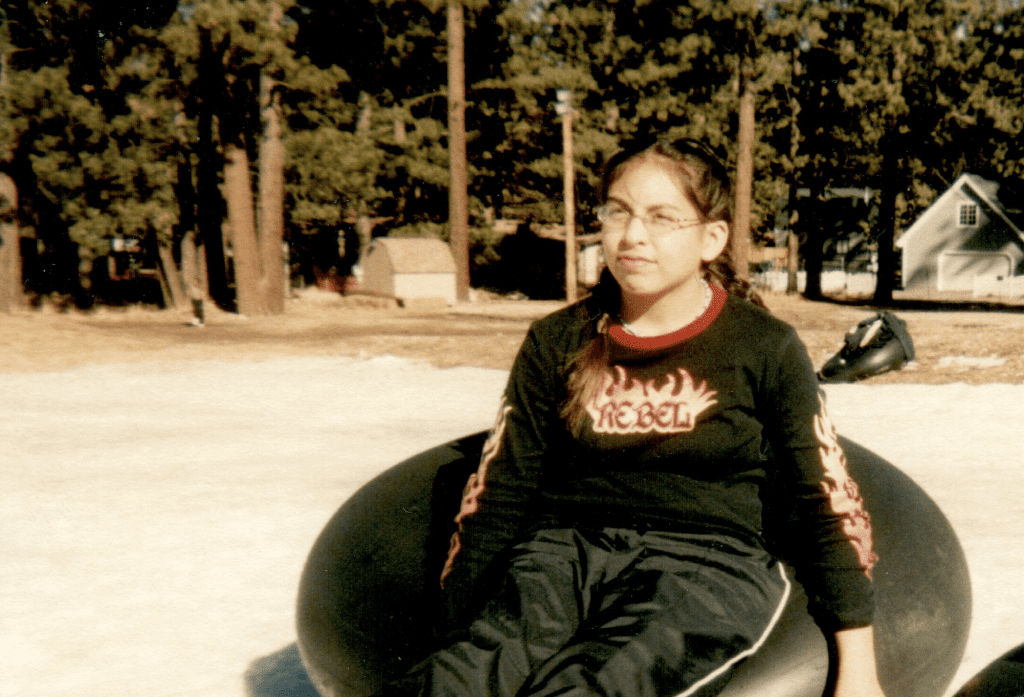
Talking about puberty, let’s normalize periods.
A big controversy in the movie is the reference to Mei starting her period. When Mei turns into the red panda, her mom immediately thinks she started her period and offers her medication and pads. The actual words “period” or “menstrual cycle” weren’t even mentioned. However, alluding to the situation lit a fire in the parent community. Many feel it is inappropriate to include menstrual talk in an animated film for children.
As a mom of a toddler daughter, I haven’t given much thought to the period talk. But watching this film brought back cringe-worthy memories from my own experience. Like I mentioned above, my family never discussed this topic. And when it did happen, I was mortified. My mom washed my underwear in the sink and set them at the bottom of our stairs. She had me jump over my underwear, up the stairs, as far as I could. The number of steps I jumped was how many days my first menstrual cycle would last but was also a metaphorical welcoming to womanhood. My dad was watching TV within view of this momentous occasion and I about died.
I was so mortified, I never spoke a word of it again . . . until I watched this movie.
I called my mom, and she confirmed that my memories were spot on. She even continued to add that you could not shower or iron your clothes during your first period in our culture. I asked her for the reasoning, and her reasoning seemed to be: “That’s just what my mom did.” For generations, we have followed the advice and direction of our mothers before us without questioning them.
This will not happen to my daughter. I want to have open conversations with her (and my son) about the changes in their bodies. This movie opens up the floor for these topics in a non-threatening and non-embarrassing way. I wish there was a movie like this when I was a tween to forge the path for a conversation with my mom. I bet it would have helped me avoid feelings of shame about something as natural and normal as your menstrual cycle.
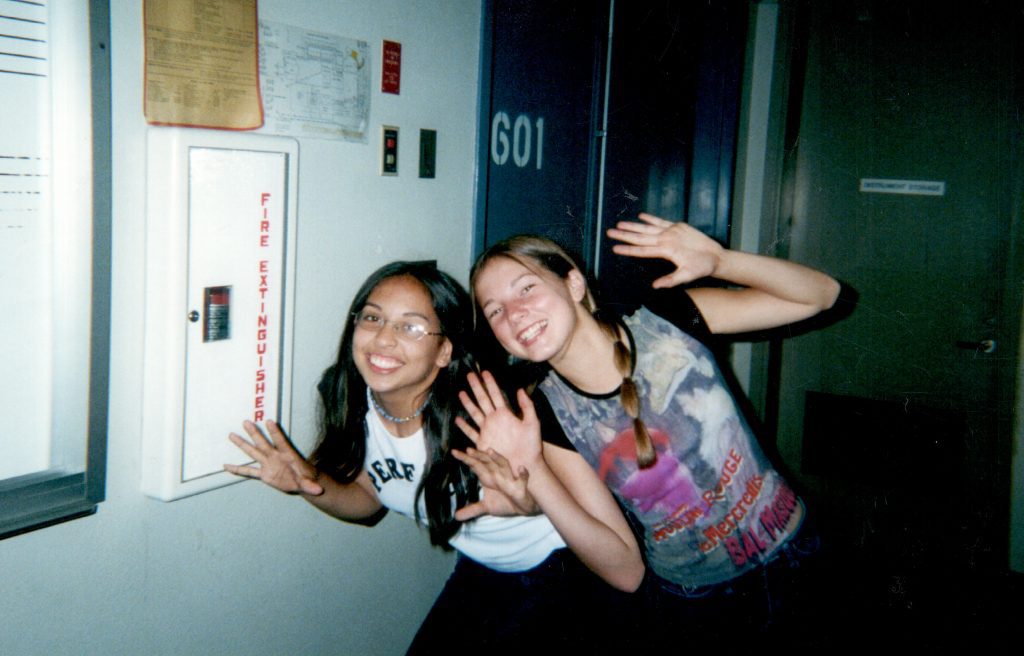
Let’s talk about big emotions and how to cope.
Puberty is all about change–changes in our hormones, emotions, and feelings. The story of Mei does an excellent job of showing how tweens go through these changes in a way that is easy to understand. The red panda comes out when she has big emotions, but throughout the film, she learns how to address her feelings and take control of her emotions. She does this by deep breathing and surrounding herself with people who make her feel accepted and safe, who she can talk to. This is a great coping skill, one I hope many tweens will take away from the story!
Be that safe place for your children.
I honestly wish I could have had the courage to bring up tough topics with my parents. I would have rather learned about puberty-type things at home instead of through school staff, friends, and a very awkward required “health” class. Mei also has a sort-of bully, Tyler, who laughs and ridicules her. We all had that someone in middle school, right? He is the type of person who would make fun of you for having body odor or growing hair in odd places. Wouldn’t you want your children to feel safe discussing these things at home with you? Instead of being shamed by a Tyler?
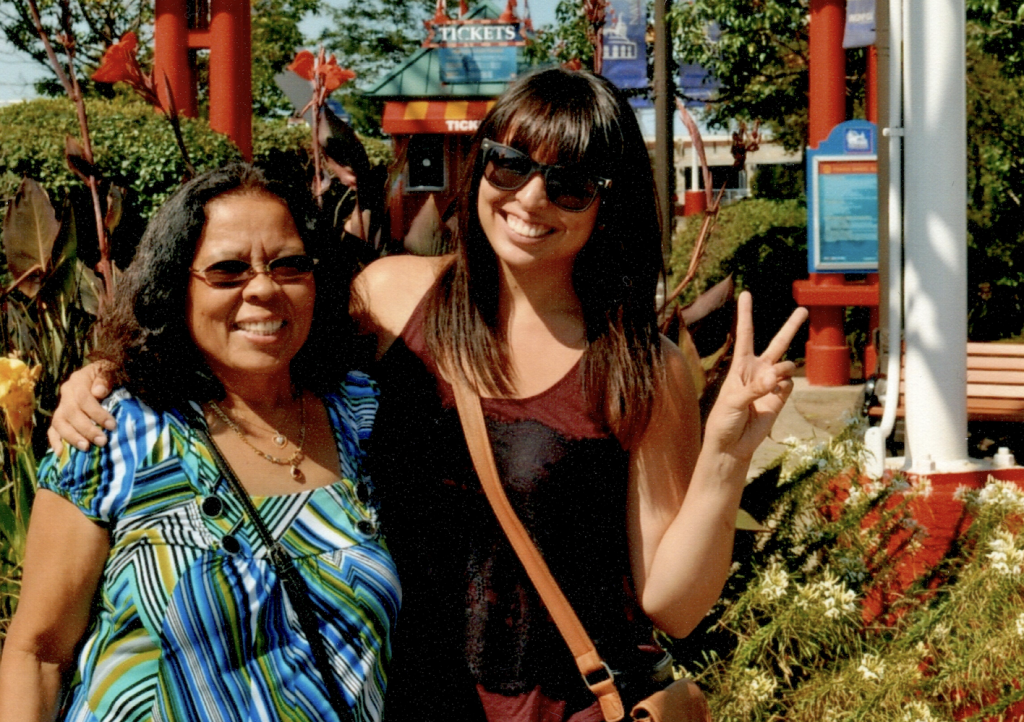
This movie is controversial, as is everything we do as people and parents. We always have to decide to do what is right for our own families. As an Asian-American daughter and mom, I am so appreciative of the representation in this film. I have learned through my own experiences that I want to have control of the narrative by being there for my children as they go through these big life changes. I know that watching this film as a family can open the doors to conversations that would have been hard to bring up otherwise.
The opinions expressed in this post are those of the author. They do not necessarily reflect the official policy or position of ABQ Mom, its executive team, other contributors to the site, its sponsors or partners, or any organizations the aforementioned might be affiliated with.





